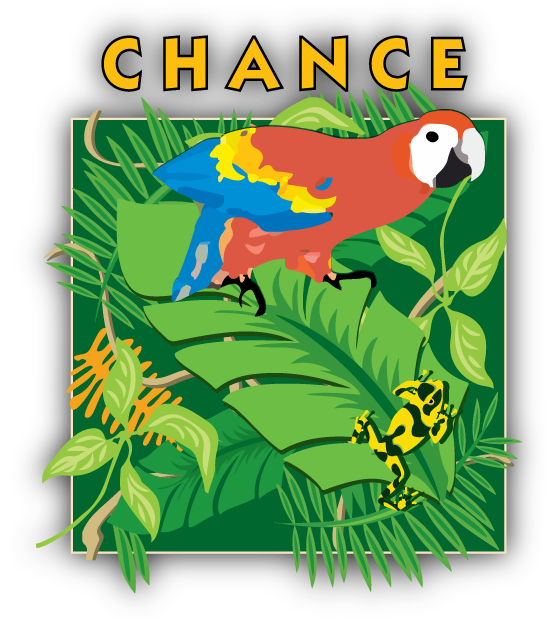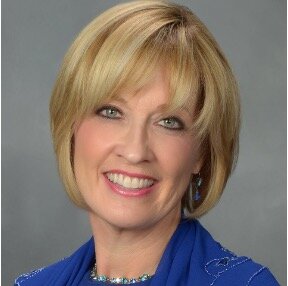Romania Field Course Instructors
Penn State Program Director and Instructor
Dr. Jacqueline McLaughlin
The Pennsylvania State University - Lehigh Valley
Professor of Biology
CHANCE Director
jshea@psu.edu
Dr. Jacqueline McLaughlin is a Professor of Biology at Pennsylvania State University-Lehigh Valley and Founding Director of CHANCE (Connecting Humans And Nature through Conservation Experiences). Her prodigious experiences as a biology professor in the life sciences, faculty mentor in teaching, short-term study-abroad program director and development officer, international conservationist, researcher in the field of biology education, and foreign affairs officer for the U.S. Department of State in the area of science diplomacy and science and technology (S&T) cooperation have empowered her to constantly navigate the changing dynamic of higher education worldwide in order to (re) create transformative learning environments that support, encourage, and inspire students to better our world through STEM.
Penn State Instructor
Dr. Kathleen Fadigan
The Pennsylvania State University - Lehigh Valley
Biology Educator and CHANCE Co-Instructor
kxf24@psu.edu
Dr. Fadigan earned her Ed.D. in Curriculum, Instruction and Technology in Education from Temple University in 2003. She has taught courses in science education, sustainability leadership, and plant biology. Since 2007, she has served as a co-instructor for the CHANCE field study in Costa Rica, Panama, and Romania. Her research interests include informal science education, science fairs, using social media to educate adults about food waste, and gender equity in science.
Penn State Program Coordinator
Kathryn Pitts
The Pennsylvania State University - Lehigh Valley
kmp6455@psu.edu
Kathryn Pitts, CHANCE Administrative Coordinator, is also the Penn State Lehigh Valley Campus Administrative Support Assistant for Academic Affairs.
CURE Research Mentor
Dr. Carmen Postolache
University of Bucharest
Dean of the Faculty of Biology
carmen_postolache83@yahoo.com
Dr. Carmen Postolache is the Dean of Faculty of Biology, University of Bucharest and PhD supervisor in the Department of Systems Ecology and Sustainability. Her expertise are in the areas of biogeochemical cycles of nutrients and heavy metals, ecotoxicology, water quality, mathematical modeling of nutrient flows, physical chemistry, structure-biological activity relationship of biomolecules, and enzyme kinetics. She has been a member of more than 50 national and international projects including Twinning Programs funded by the U.S. National Academy of Sciences. Her excellent scientific experience gives her the capacity to offer the students an interdisciplinary vision and a transdisciplinary research model.
CURE Research Mentor
Dr. Maria Iasmina Moza
University of Bucharest
Assistant Professor of Biology
Iasmina_moza@yahoo.com
Dr. Moza holds a Ph.D. in aquatic ecology from the University of Bucharest. She has worked as a researcher at the Institute of Biology, Bucharest and as a lab technician at the Research Centre at the University of Sibiu. Presently, she is working as a lab technician monitoring large carnivores using non-invasive samples as well as monitoring rivers using eDNA and bioindicators at the Foundation Conservation Carpathia. Her experience includes lab work (microbiology and genetics), field work, scientific output, team work on internationals projects involving undergraduate research.
CURE Research Mentor
Dr. Mihaela Verga
University of Bucharest
Lecturer of Geography
Mihaela.verga@geo.unibuc.ro
Dr. Mihaela Verga is a Lecturer of Geography, University of Bucharest, specializing in environmental sciences, applied geography, land deterioration, natural hazards and risks. She is involved in research projects on the Carpathian region, training programs for secondary school teachers, teaching assignments in Erasmus+ Program, and educational programs in protected areas. She is the author of several books/book chapters and scientific articles published in peer-reviewed journals or proceedings of international conferences. She is also the leader of the national team of Romania at the International Geography Olympiad, rewarded by the Ministry of Education and Research for meritorious results.
CURE Research Mentor
Dr. Luminita Marutescu
University of Bucharest
Associate Professor in Microbiology & Immunology
Luminita.marutescu@bio.u-nibuc.ro
Dr. Luminita Marutescu, Biologist, holds a PhD in Microbiology (2010, University of Bucharest). She has an H-index 13 according to Web of Science and is co-author of 80 peer-reviewed scientific publications. For the past four years her research focused on antibiotic resistant bacteria in the environment, particularly in the aquatic environment, and the public health risks associated with the presence of these bacteria in surface water. She participated in three EU research projects investigating the role of sewage and manure in the emergence, selection, and transmission of antibiotic resistance and the potential contribution of antibacterial biocides to the development and spread of antibiotic resistant bacteria in different aquatic ecosystems.
CURE Research Mentor
GINEVRA LILLI
Université Libre de Bruxelles
Doctoral Candidate
lilli.ginevra@ulb.be
Ginevra Lilli is a Ph.D. student at the Université Libre de Bruxelles, Belguim and a member of EU-based Biodiversa research project. She holds a bachelor’s degree in biotechnology and a master’s degree in ecology, obtained respectively at the University of Perugia and the University La Sapienza in Rome. Her main research interest are the dynamics existing between vertebrates and their symbiotic microbial communities (i.e., gut microbiota, skin microbiota). She has expertise in the analysis of ecological and microbiological data and in bioinformatics. Additionally, she has experience in field data collection and in laboratory work (e.g., eDNA, metagenomics, genetics).
CURE Research Mentor
CLAIRE BAUDOUX
Université Libre de Bruxelles
Doctoral Candidate
claire.baudoux@ulb.be
Claire Baudoux holds a master’s degree in Organismal Biology and Ecology from Université Libre de Bruxelles (ULB), Belguim, and a master’s degree in Biodiversity Conservation, Management and Restoration from University of Granada, Spain. She is currently a Ph.D. student and a teaching assistant at ULB. Her teachings cover botany, general biology, ethnobotany and plant physiology for undergraduates. She is a member of the Evolutionary Biology and Ecology unit (EBE, ULB) and her research focuses on the introduction of the tropical tree specie,s C. Pelata, in Cameroon and the possible environmental consequences of this invasion process.
CHANCE Research Mentor
CLAIRE A. CHAUVEAU
Université Libre de Bruxelles
Doctoral Candidate
claire.chauveau@ulb.be
Claire A. Chauveau is a Ph.D. candidate and an undergraduates teaching assistant at the Université libre de Bruxelles (ULB) in the area microbiology, botany, plant physiology and animal biology. She holds a Master's degree in oceanography from Université of Liège and her Master's research was undertaken at Utah State University on the production of the tetrodotoxin by bacteria in the blue-ringed octopus. She obtained a second master's degree in herpetology at Vrije University Brussels wherein she worked on the resistance of endemic Italian cave salamanders (Speleomantes italicus) to chytridiomycosis. She is a member DarCo, a EU Biodiversa+ project, for caves conservation. Presently, her research focuses on the Thiothrix-amphipod relationship: a new model of ectosymbiosis found in marine and freshwater environments.
CHANCE Research Mentor
VALENTIN BARBEROUX
Université Libre de Bruxelles
Doctoral Candidate
Valentin Barberoux holds a M.Sc. in agronomic sciences and is currently a Ph.D. candidate and teaching assistant at the Université Libre de Bruxelles (ULB), Belgium. He teaches undergraduate courses to undergraduates in biology and bioengineering, such as microbiology, ecology, botany, and pedagogic training to pre-service high school biology teachers. He is part of the Laboratory of Ecology of Aquatic Systems (ESA, ULB). His research focuses on the microbial diversity characterization of a major Western European watershed (the Meuse River) and the identification of the physicochemical parameters driving this diversity.












